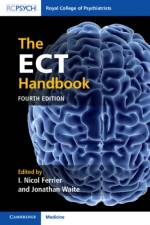99,00 €
"In the past decade, Artificial Intelligence (AI) as a general-purpose tool has become a disruptive force globally. By leveraging the power of artificial neural networks, deep learning frameworks can now translate text from hundreds of languages, enable real-time navigation for everyone, recognise pathological medical images, as well as enable many other applications across all sectors in society. However, the enormous potential for innovation and technological advances and the chances that AI systems provide come with hazards and risks that are not yet fully explored, let alone fully understood. One can stress the opportunities of AI systems to improve health care, especially in times of a pandemic, provide automated mobility, support the protection of the environment, protect our security and otherwise support human welfare, but nevertheless, we must not neglect that AI systems can pose risks to individuals, and societies, for example by disseminating biases, by undermining political deliberation or by the development of autonomous weapons. This means that there is an urgent need for responsible governance of AI systems. This Handbook shall be a basis to spell out in more detail what could become relevant features of Responsible AI and how we can achieve and implement them at the regional, national and international level. Hence, the aim of this Handbook is to address some of the most pressing philosophical, ethical, legal, and societal challenges posed by AI"--












